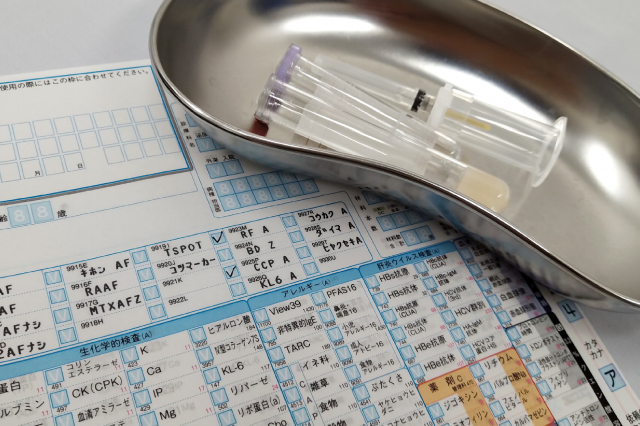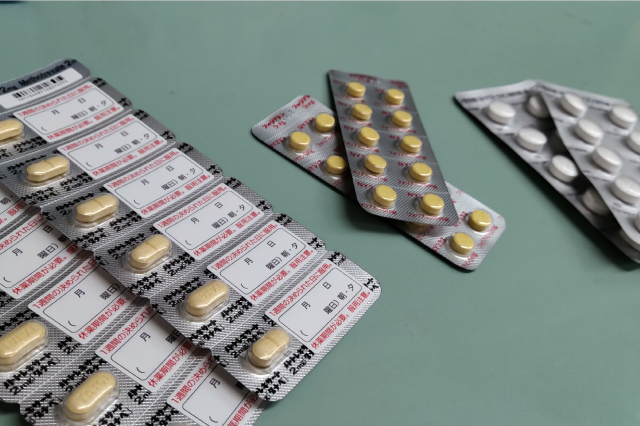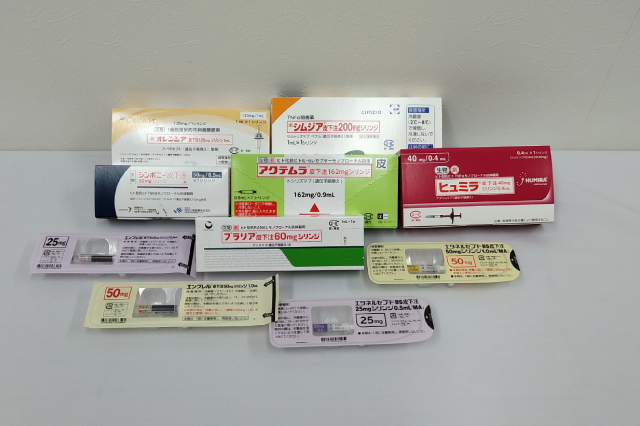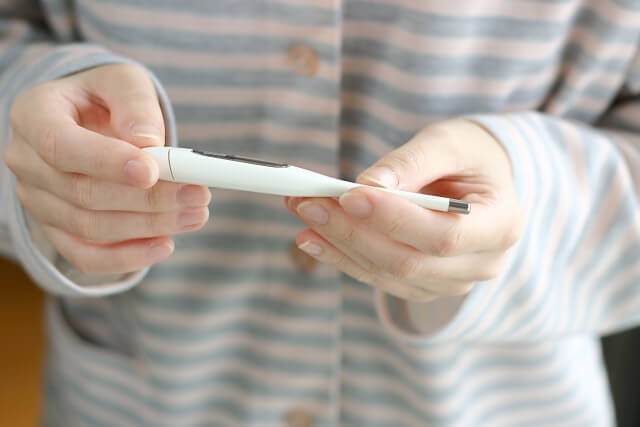Warning while taking MTX
Over-the-counter medications, regular cold remedies and antibiotics can be used together without any problems. However, in rheumatoid arthritis patients, what you think is a cold may be the beginning of pneumonia. Except for very mild cases, please visit the main hospital as much as possible instead of your local doctor.
If you have a cough that does not stop, a fever over 38 degrees Celsius, little or no appetite, difficulty breathing, or severe lethargy, please stop taking the medicine and come to the hospital or call for a follow-up appointment as soon as possible.
If your symptoms are mild, you may adjust your dosage accordingly, such as halving the usual dosage or taking a Saturday or Sunday off.
If you are too far away to visit a doctor, please call for a follow-up appointment.
Also, please see a physician (preferably a respiratory specialist) at a large hospital as soon as possible to have blood tests and chest x-rays done.
If you continue to take MTX while dehydrated or unable to eat, especially if you are over 70 years old or have poor kidney function, the concentration of MTX in your blood will increase and your white blood cells will decrease drastically. As a result, pneumonia and sepsis can kill you.
Other common side effects include gastrointestinal problems, mouth ulcers, throat and other mucous membrane irritation, dry cough, breathlessness, fatigue, easy hair loss when washing hair, easy internal bleeding, difficulty stopping menstrual bleeding, and increased liver function numbers.
These side effects, on the other hand, can be a sign that the drug is working well in the body (well-concentrated), so there is no need to worry too much about them if they are mild.
It often gets better by adjusting the dosage of the medication.
Physical condition management during rheumatism treatment
Especially for people with lung diseases and elderly people
For patients with pulmonary diseases and the elderly, we recommend that they purchase a pulse oximeter and keep one in the house.
Simply put, a pulse oximeter is a machine that measures the level of oxygen in your blood.
You should measure the number when you are well.
For example, if your usual level is 98%, if it drops below 96%, you need to be careful and there is a considerable possibility of pneumonia.
Please see your doctor immediately for a chest x-ray.
Even if the pneumonia is caused by coronavirus, you can prevent it from becoming serious if you treat it as soon as it is mild.









